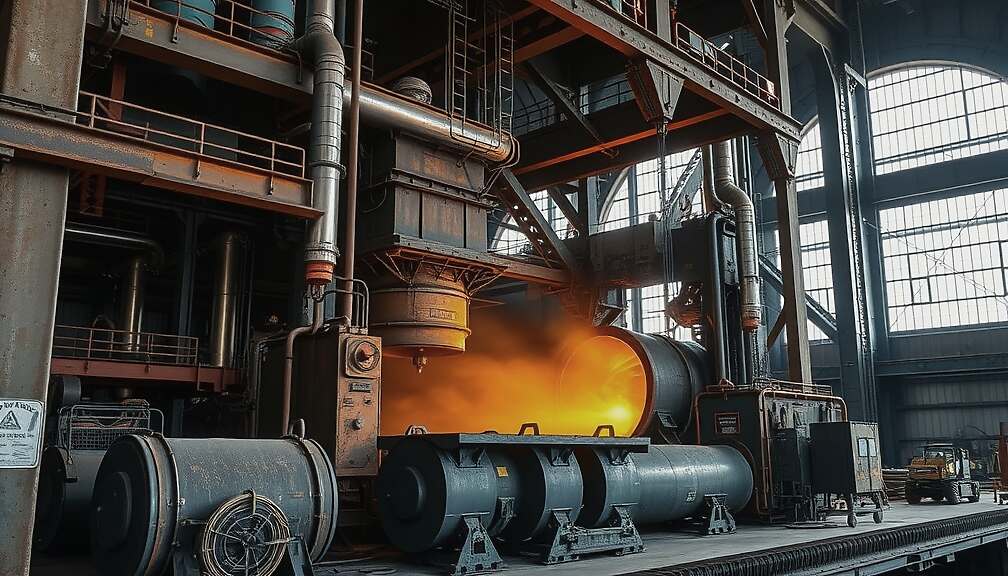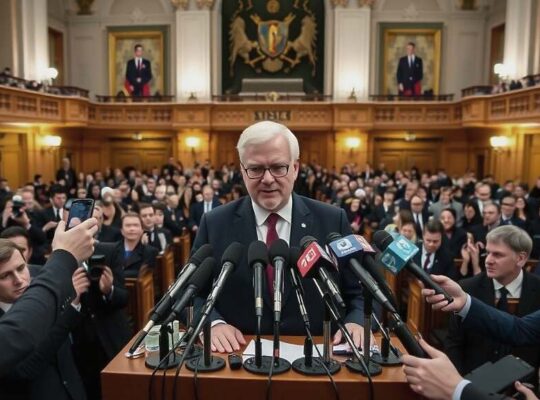The German steel industry is issuing a stark warning ahead of a critical summit convened by Chancellor Scholz, demanding a radical shift in industrial policy to avert a deepening crisis and potential erosion of Germany’s manufacturing base. In a forceful opinion piece published in the Handelsblatt, Gunnar Groebler, President of the German Steel Association (Wirtschaftsvereinigung Stahl) and Kerstin Maria Rippel, Managing Director of the Steel Association, argue that the sector’s transformation towards climate neutrality is fundamentally jeopardized by current economic and political conditions.
The core of the industry’s plea revolves around securing a level playing field in a global market increasingly characterized by unfair trade practices. Specifically, they are pushing for Germany to adopt an aggressive stance within the European Union, advocating for robust trade protection measures to counter the impact of “dumping imports” – goods sold at prices below production cost – that undermine domestic production. The association also expresses serious concerns regarding the implementation of the Carbon Border Adjustment Mechanism (CBAM), emphasizing the need to ensure its design mitigates potential competitive disadvantages. As a fallback, they are demanding a continuation of the free allocation of emission rights.
Beyond trade, the steel industry highlights acute energy cost challenges as a primary impediment to survival. Current conditions, they assert, render the German steel sector “simply not competitive” requiring “permanently lower grid fees, a reliable electricity price compensation and an industrial electricity price that facilitates investment”. This sentiment reflects a growing anxiety amongst industrial leaders regarding the sustainability of manufacturing in Germany.
The warning extends to a broader societal concern: a gradual, insidious decline of Germany’s industrial heartland. The association points to a consistent, month-on-month loss of industrial jobs – a trend they portray as a direct consequence of the current economic landscape. The upcoming summit, they contend, represents a pivotal moment. It will serve as a litmus test: demonstrating whether Germany possesses both the political will and the capacity to safeguard its vital industrial foundation, or risk further, irreversible damage to its economic future. The implications extend far beyond the steel sector, signaling a wider vulnerability within German manufacturing and prompting urgent questions about the nation’s long-term industrial strategy.












